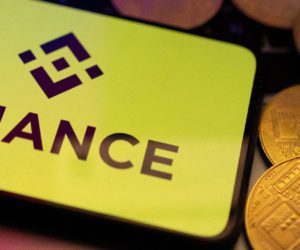By AML Intelligence Correspondent
UK BANKS are demanding social media platforms take greater responsibility in the fight against fraud – as new data shows scams continue to be driven through online channels.
UK Finance revealed that criminals stole £571 million through both unauthorised and authorised card payment fraud in the first half of 2024.
Although this marks a slight 1.5% decline from the same period in 2023—largely attributed to a drop in authorised push payment (APP) fraud—the figures highlight an ongoing issue: social media platforms remain a major source of fraudulent activity.
According to UK Finance, 72% of APP scams, in which victims are deceived into transferring money, originated on social media, with telecommunications networks responsible for 16% of such cases.
“Not only do criminals take advantage of these platforms to encourage the transfer of money through investment, romance or purchase scams, but they also use scam phone calls, text messages, and emails to trick people into handing over personal details and passwords,” UK Finance stated.
“We need the social media, technology, and telecommunications sectors to do far more in partnership with us to protect the public and society from fraud.”
This latest appeal comes as the UK Payment Systems Regulator emphasised the need for social media companies to increase their efforts in what it described as a “war of attrition” against financial fraud. The regulator highlighted that the measures currently in place are insufficient to tackle the sophisticated methods employed by cybercriminals.
To enhance protections for fraud victims, the UK government has introduced several initiatives, including a new rule that allows banks to delay suspicious payments for up to 72 hours, giving more time to investigate potential fraud. Additionally, payment providers are now liable for losses of up to £85,000 in APP fraud cases under new regulations set by the payments regulator.
Despite some progress, UK Finance’s data reveals that while losses from APP fraud dropped by 11% to £214 million in the first half of 2024, cases of unauthorised card payment fraud have surged. Losses from unauthorised payments—which include payment cards, remote banking, and cheques—rose by 5% year-on-year, amounting to £358 million. The number of unauthorised fraud cases has also jumped by 19%, surpassing 1.5 million incidents during the same period.
UK Finance noted that criminals are employing increasingly sophisticated social engineering techniques to convince customers to share one-time passcodes, allowing them to authenticate fraudulent transactions. The report also warned that online shoppers searching for discounted items on social media are particularly vulnerable to scams.
“When a customer goes to buy a product advertised on a ‘fake’ social media profile, the criminal uses stolen card details to purchase the item from a legitimate source, keeping the payment from the customer,” the report stated.
Banks have been stepping up their efforts to combat fraud. According to UK Finance, £711 million worth of unauthorised scam payments were blocked in the first half of the year. While there are signs of progress, industry leaders caution against complacency.
“It’s encouraging to see declines in certain fraud categories, in particular APP, thanks in most part to strong investment by banks, along with industry collaboration and education programmes,” said Dan Holmes, director of banking fraud, identity, and market strategy at Feedzai, a software group.
However, Holmes added that the rising unauthorised fraud across multiple channels “reminds us that we cannot be complacent.”
As the financial crime landscape continues to evolve, the responsibility to prevent fraud must be shared across the banking industry, social media platforms, and technology providers. This joint effort is crucial if the industry is to make meaningful progress in protecting consumers and reducing the overall impact of fraud.
Follow us on:
Share this on:








